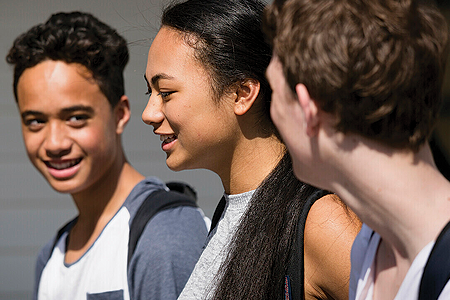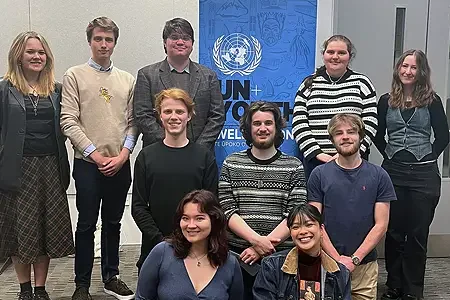Lessons from Lockdown: Equipping frontline soldiers and maintaining care
By MAS Team
MAS is talking to Members about how COVID-19 has changed their work/life balance. First up is Christine Coulter from Team Medical in Paraparaumu.
A Kapiti Coast GP has been part of the Shields Up team creating personal protection screens for frontline primary care staff tackling COVID-19.
As co-owner and a founder of Team Medical in Paraparaumu, MAS Member Christine Coulter became increasingly concerned about how she could help her employees feel safe at work as the Level 4 lockdown loomed and the scale of the health crisis New Zealand faced was still uncertain.
Martin Vieregg, a local teacher and patient, offered to use 3D printers to reproduce the components needed at no cost. Christine found inspiration in a local hardware store; Martin sourced a 3D print pattern and delivered the first 20 shields to Team Medical the next day.

Between them, the social networking began and within seven days there were 6,000 supplied with shields across New Zealand, with a further 20,000 ordered. With 500 volunteers now printing across New Zealand, 5,000 to 10,000 screens are being produced each day to help protect GPs and frontline medical staff across the country.
These have been supplied free of charge to GPs, paramedics, pharmacists, carers and any other essential workers who requested them.
"It has been absolutely crazy organising that," Christine says.
The shields cost about $1 each in materials to create, and a Give-a-Little page has been set up to help fund the costs for the owners of the 3D printers, but the "kind people who are choosing to create them refused to accept the money". Instead, the $40,000 raised will be used to help get shields out to those who otherwise couldn't access them.
Christine says wearing the shields helps remove the scariness and impersonal nature of doctors wearing facemasks as it allows people to see their doctors' full faces.
"A colleague said their daughter says she's not so scared of the monsters in masks, and it means we're not transmitting among our work bubble". she says.
It also means if they do need to wear a facemask underneath, they can be reused as they haven't been directly exposed to potentially infectious people or come into contact with any other potentially infectious items.

The early days of the lockdown saw Christine at work for 15-hour days on occasion.
The decision to move to Level 4 level came at a time when the Team Medical Centre was undergoing a major refurbishment. Thankfully, part of it was completed in time and she got family in to help the practice move into their newly-remodelled accident and medical consultation rooms.
At the start of the lockdown period, she would arrive at work at 7.45am and often be there until after 10pm, although as the weeks have gone on she's been able to pull back and get home earlier.
Like GPs across the country, Christine is seeing about 90% of her patients via contactless consultations on phone or video calls. Christine has set up teddy bears behind her desk to make the video sessions seem more welcoming and friendly.

"One thing I'm really sad about is I usually wear amazing bright clothes and heels to work, but now I'm wearing scrubs every day."
Team Medical has also set up a COVID-19 swabbing clinic, allowing them to test about 28 people across two hours in their car park. Christine says this work is making her staff feel very proud, and they're grateful for the Shields Up face shields to add extra protection for them during this process.
They'll retain their testing service as long as the community needs it, she says.
Evenings and weekends are spent with her husband and 17-year-old daughter, Annie, although they're sticking much closer to home than usual.
"I go for a run, do the garden, sew, go mountain biking. I can't surf or kayak at the moment and can't mountain bike anywhere decent," she says.
At the start of lockdown they had a family meeting where they agreed on the house rules.
"What matters most is safety and health, and the second-most important thing is relationships. The third is cleanliness and tidiness, so we agreed to focus on our own safety and to be nice to each other first,"
Her husband is working from home full time and has picked up most of the cooking and housework which they usually share evenly.
"Every day we have a meal together and we always thank whoever cooked the meal and talk about what we're grateful for."
We want to hear about how you're living and working under lockdown. What projects have you been working on from home? How are you managing family life, your mental health and keep in touch with your communities? If you'd like to share your story, email us at onmas@mas.co.nz and tell us how you're living and working under lockdown.

We talked to experts on health equity in both the rainbow community and rural health to learn about the discrepancies in health outcomes.

As a driving force for change in rural healthcare, the Tarāpunga mobile ENT clinic brings much-needed ear, nose and throat treatment to at-risk communities.

The latest MAS Here for Good scholarship recipients include an inspirational pain-management advocate, a volunteer making running more accessible for all, and a politics student encouraging the next generation of global leaders.